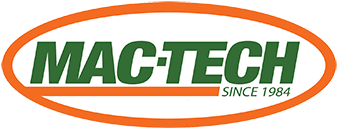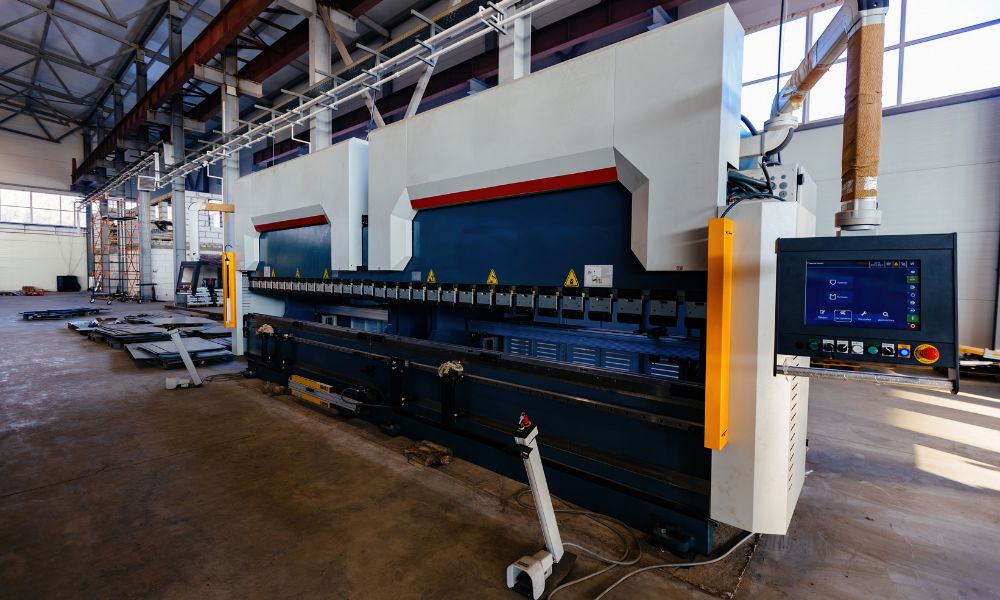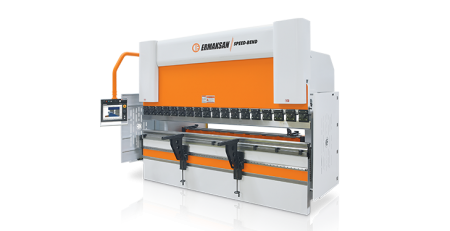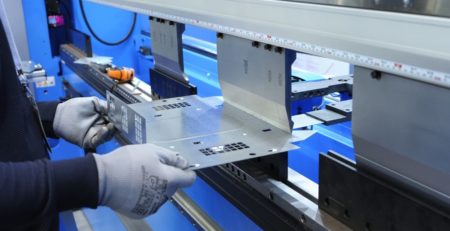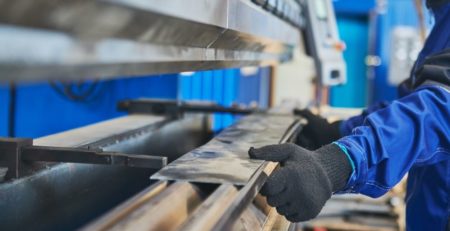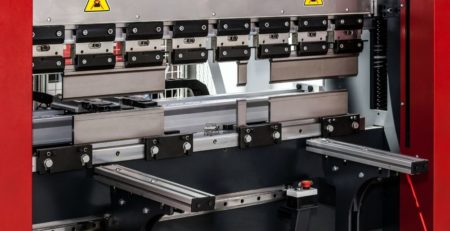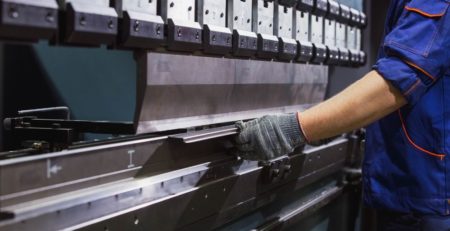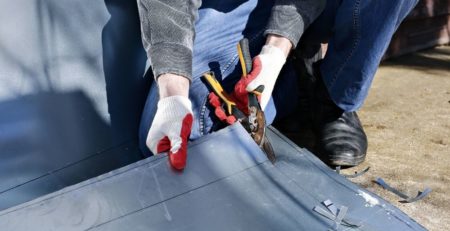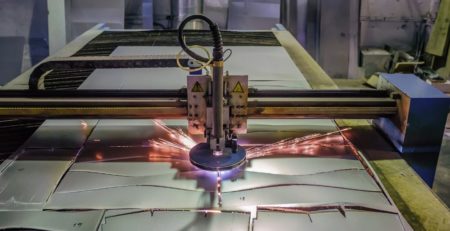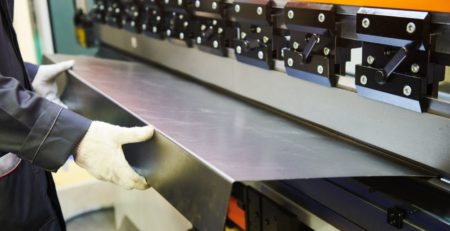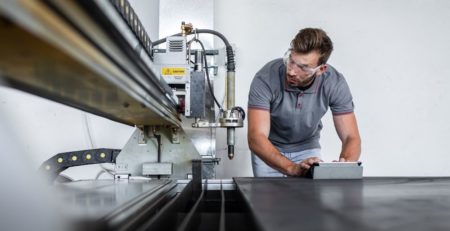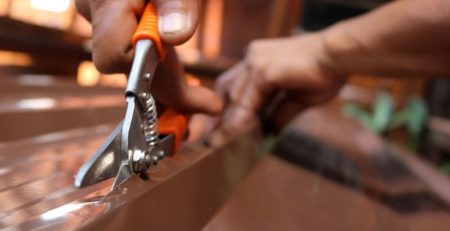The Most Common Press Brake Mistakes To Avoid
Press brake machine operators must be highly trained, vigilant, and capable of making accurate calculations and observations about the press brake machine and the work it produces. Yet even the most experienced metal fabrication workers can make mistakes. The most common press brake mistakes to avoid can happen when a shop is under pressure to meet a deadline, when operators are fatigued, or when shop managers allow complacency to set in.
Press brakes are complex and expensive machines that require attentive care daily. Anything less can result in wasted material, unacceptable products, or worse, injury. Shop owners must insist that operators observe standard procedures without fail in order to maintain quality and productivity. Below are several examples of avoidable mistakes that can hamper production, damage machines, and harm a shop’s reputation.
Incorrect Lubrication
Failing to lubricate a press brake can result in damage to the machine. All moving parts of a press brake require some type of lubrication. Without it, the machine can literally grind to a halt.
Different machines will have different lubrication requirements. Familiarizing yourself and training all metal fabrication machine operators on proper lubrication schedules and techniques for your specific machine is critical.
Overlubricating a press brake is also a common mistake to avoid. Too much lubrication can cause drag and attract dirt and debris. In turn, the debris causes friction that can damage seals and create leaks. Ensuring the right type of lubricant, in the right amount and thickness, will extend machine life and result in higher quality work.
Dirty Machines
Press brakes can get dirty. They gather metal debris, dust, and dirt, which can scratch products. Metal dust or debris can actually infect a machine’s electrical parts by working its way into control panels.
Every shop should have a checklist that specifies that machines must be wiped clean every day before setup for a fabrication job. This includes removing oily residue that could attract dust.
Sticky Gibs
Another consequence of improper cleaning and lubrication is gibs that stick or fail. Gibs control the ram and attached tool as they move up and down. If the gibs stick or wobble, the machine can jam. Gibs need periodic readjustment and proper lubrication.
Ram Deflection
Miscalculating the tonnage required to bend a specific type of metal can result in the deformation of the ram. Both the ram and the bed will deflect during operation, but the deflection should resolve when the pressure on the ram releases.
However, “ram upset,” or over-deflection that doesn’t resolve, can occur when the bending load is too concentrated. The result is a part with a larger angle in the center than at the ends. Loads must be positioned with precision to avoid ram upset. If ram upset occurs, the ram or bed must be reformed to the proper shape.
Old Hydraulic Fluid
Hydraulic press brakes get their power from hydraulic fluid. But hydraulic fluid loses its effectiveness when it is contaminated with debris, air, or water or when it has been subjected to high temperatures for an extended time. Old hydraulic fluid can damage cylinders and other parts. Ensure that you change the hydraulic fluid according to the press brake manufacturer’s suggested schedule based on how often the machine runs and the type of work it does.
Poor Leveling
When you first installed your press brake, you no doubt ensured it was level. But over time, shop floors can shift, sag, or heave, affecting leveling. Periodically check the leveling of press brake machines. A machine that isn’t level puts the gibs out of parallel, resulting in the ram twisting and producing inaccurate parts.
Cutting or Punching Too Close to the Bend
Before starting any metal fabrication project, operators must review the specifications carefully to catch any potential issues and ensure calculations are correct. Designs that place cuts or punches too close to a bend can deform the intended shape of the opening.
Mixing Up Air and Bottom Bending
Air bending, where the tool doesn’t push all the way to the bottom of the die or bed, is useful for making bends in metal that needn’t be extremely precise. Bottom bending is better for metal parts that must come out with precise angles. If a piece calls for bottom bending but is made with air bending, it may not fit or function as intended, and vice versa.
Tight Bend Radius
Too tight a bend radius can break the tool and crack the workpiece. Calculations for the bend radius must account for the type of metal, the thickness of the metal, and the tonnage necessary to bend the metal.
Misalignment
The tool (or punch) and die must be accurately aligned to create parts according to specifications. Misaligned tools and dies produce parts with inaccurate flange widths. The center of the tool must reside in the same plane as the center of the die for quality production in metal fabrication.
What To Do About Machining Mistakes
Avoiding common press brake mistakes is possible with proper training, unyielding adherence to maintenance and safety checklists, and knowledgeable servicing. When buying or setting up a press brake machine, the supplier should be able to provide consultation, advice, and training where necessary.
More than that, your press brake machine supplier should be available to you for ongoing scheduled maintenance and troubleshooting. At Mac-Tech, we pride ourselves on providing responsive, quick service. When you work with us, you’ll have a partner for the maintenance and service of your machines. We can supply replacement parts, repairs, training, installation, and lubrication services with a 24-hour response time.
For new and pre-owned metal fabrication machinery, you can’t find a better partner than Mac-Tech. We offer electric and hydraulic press brakes and tandem press brake systems, laser and plasma cutters, shears, beam coping equipment, and CNC software and control systems. We can appraise your machines, provide efficient floor layout plans, and provide machine calibration services. Contact Mac-Tech for your metal fabrication machinery and service needs. We’re confident our machines and service will exceed your expectations.

